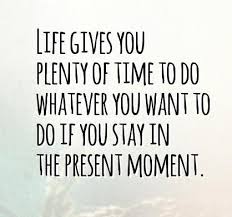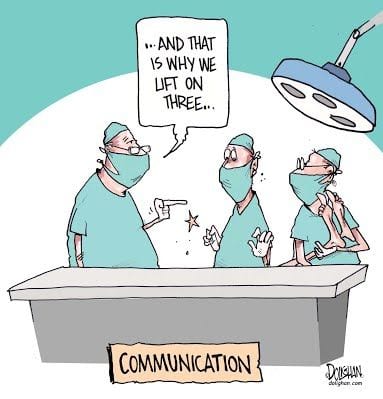|
I know I have mentioned several times that I also teach online graduate courses, but if this is your first time reading my blog, let me catch you up. I teach Educational Leadership courses for online students at one university, and I mentor lots of doctoral students at two other universities (who are writing their dissertations). I adore both types of work, even though they are so different from one another. My masters' level students often get quite surprised by my presence in their discussion threads. I poke my nose in and lurk (definitely not in a creepy way), in a way that I firmly believe all good teachers should do when their own students are engaged in table group discussions or even partner discussions. Why? Because we simply need to know what is being talked about in order to get the finger on the pulse of what is happening in each of those conversations. Can I hear them all? Of course not, even when I am teaching a face-to-face workshop. However, I think it is one of the most important strategies I can share with novice or pre-service teachers. So, if this is a strategy we expect teachers to use in their classroom, then principals need to use it when they are listening to conversations between their own teachers in Professional Learning Communities or professional development opportunities. So, if this is a strategy school leaders should use, then I should be modeling it for them when I teach a face-to-face workshop or an online course.
I try to model several types of engagement strategies, discussion techniques, classroom management routines, and methods of building rapport when I teach, as well. I call participants by name, I use chimes to ring to bring us all back together after a group discussion or activity, and I use multiple engaging techniques specific to the outcomes we are attempting to reach. I always am certain to tell my participants that I don't ring chimes because it is "cute"; I ring chimes because music tends to cut through even louder group conversations, which allows me to ask people to pause their conversations and come back to their tables. I, in fact, also tell people that whenever I show a video, it is for a specific purpose. If they need a graphic organizer to help them keep track of what they are gleaning from the video, I try to provide that, as well Again, I am trying to model what I think good school leaders should do for teachers, and what teachers should be doing for their students. Recently, I got feedback from a participant in a workshop who said, "I didn't like that she used chimes. It was too childlike and it goes against what we are always taught." I admit I was shocked. First of all, hadn't I explained the purpose of modeling? As a principal, I used to use puppets every Friday morning for our news show. Libby the Black Lab would tell Mud the Chocolate Lab how she should learn better manners as a growing puppy (thereby teaching the students they should model good manners for one another in the classroom or lunchroom). I had a bald eagle who would say, in a very professor-ish sounding voice (stick with me), "I have SEEN......" and then he would launch into what he was seeing as good or bad examples of leadership around the school. When I talk about the use of those puppets, I always jokingly say, "I think I could have taught the students how to multiply fractions using those puppets as they were typically riveted to the news show, not caring that I am not a masterful puppeteer and my lips would move the whole time." But I also make sure I tell people that not everyone is comfortable using puppets, as a teacher or as an administrator (I'm so wacky, I had about 25 different puppets with 25 different personalities and, therefore, 25 different voices I had to memorize). I always say to use what works for you! If it feels comfortable to YOU, it will feel comfortable for your audience. This little piece of feedback was literally the first time I have ever had someone say something that indicated they felt "belittled" by my use of chimes as a transition tool. I SO badly wish they would have asked about it during the workshop, as I would have turned to the whole group of school leaders and asked, "What do you use to model for your teachers transition tools they can use in their own classrooms?" I have a hunch I would have heard things like, "I do rhythmic clapping" or "I model the call and response I like to see teachers use like 'All set?' and then the students say 'You bet'." Some might say, "I don't use any gimmicks with my teachers. I just yell at them to get quiet so we can begin our meeting." Ugggh! Let's yell to get people quiet. Wait....what??? Just as those Russian nesting dolls fit so nicely within one another, so I see with modeling what we want to see at the next level of "doll". Whether it is a set of chimes, a silly song, a call and response, or WHATEVER, teachers are watching school leaders, and school leaders (or potential ones) are watching me to see if I am standing and delivering content (versus engaging them in content). It is incumbent upon each one of us to model different strategies for different purposes. Maybe I have mentioned that I am a perfectionist. While most all the other feedback from that session was extremely positive, I got stuck on that one negative statement. That, indeed, is precisely the type of negative thinking that I encourage people to avoid, by the way. "Do not let 5% of the group take up 95% of your time", whether that time is physical or mental. So, I'm posting about it to get it off my chest and be done with it. :) So, what do you model for your own children, students, teachers, or others with whom you work? I can't wait to hear your thoughts. Happy Communicating!! Shelly
0 Comments
 For educators, summer can be a great time to reflect. It can also be a great time to go to the bathroom whenever you want to, to take a breath, and to maybe actually read a book for pleasure. It seems that, when we are in the heat of the moment (or, for teachers, all year), we barely have time to think a year ahead of time, or even a month or even a week ahead of time sometimes. I know I felt that way many times as a teacher and as a school administrator, and yet we are expected to do exactly that----think ahead about what we will be teaching in the next couple of weeks, what numbers we are projecting for our school budgets, etc. Staying in the moment seems to be a luxury. I have always had a difficult time staying in the moment. I always joke that, while my favorite Bible verse is "Be still, and know that I am God", I also struggle with it. I have no problem at all with knowing that He is God, but I do have issues with the being still part. I feel I have to be doing something all the time, and I struggle with slowing down. My dear spiritual advisor has her work cut out for her, as she is trying to teach me to meditate. I happen to be pretty good at getting down on my knees every single morning to ask God to direct my thinking and align my will with His for the day. But once I am off my knees, I truly struggle with getting still enough to meditate. I have a mantra I use, I have a spot in which I can get still, I just can't seem to find the ability to truly "get still". Why is this skill so important? For me, I believe that in order to be able to discern what our next steps in life are going to be, Dave and I need to be able to truly stay in the moment and talk rationally about choices we are going to make. I have been so very blessed with some pretty amazing career paths and choices in my life. Before I graduated from college, I was hired to teach at the very school where I had student-taught. What a win-win! A couple of years later, I was able to shift gears a little bit and bring a brand new initiative called "inclusion" (am I dating myself? I guess so) to a school in the Dallas area. That turned out to be a pretty big win-win, and I happened to meet and fall in love with Dave during that time. Shortly after we married, we moved to New Mexico, where I had the unique opportunity to get my M.A. in Counseling and Educational Psychology. I was privileged to be able to do internships at a local "Children in Need of Services" organization and at a high school where I did career counseling. My career as a guidance counselor came in handy when Dave and I moved to Florida, as I got the opportunity to work with one of my favorite principals ever at a middle school, then two summers later, a guidance counselor position came open at the closest elementary school to our house. Blessings all over the place. After believing that being an elementary school counselor must be the best job in the entire world, I was introduced to a unique opportunity to become a principal at that same elementary school. While I still say, "I never thought I had the desire to be principal at A school, but I sure jumped at the chance to interview to become the principal at THIS elementary school." Those 7 years were so perfect in so many ways. At one point, though, Dave and I looked at each other and said, "If we don't leave and try something different now, we may stay here forever" (which, by the way, would not have been a hardship by any means, but we still had the opportunity to do something different). Moving to Tucson gave Dave the last three years of work before he was able to retire early, and I became a consultant, working with the best teacher growth model I have ever been a part of, the Danielson Framework for Teaching. That was almost seven years ago. I have met some of the most amazing, talented, dedicated, and wisdom-filled teachers and school leaders who have taught me so much about myself and about teaching, in general. I now have my doctorate, I teach master's and doctoral level courses, and I travel the world working with schools, districts, and universities who all want to improve teacher growth. Who knows what is next? There might be something new right around the corner...I don't know. All I know is that I am going to continue to pray for God to direct my thinking, allow Him to help Dave and me discern what is the next step for us, and somehow, some way find a way to learn how to meditate. What about you? What are your hopes and dreams? Which of them have you accomplished? What is your next step? How do you stay in the moment while also planning for the future? I pray for each and every one of you!! Happy Communicating, Shelly When I first decided to begin blogging, Dave asked me what the subject or topic of my blog would be. I told him I wanted it to go along with my website, in which I advertised the books I had written, the workshops I presented, and my passion for learning, teaching, communication, and trust. He suggested I call the blog "Miss Communication", which I thought was hilarious. A bit like "Miss Manners", it would center mainly on topics about miscommunication with a twist. Naturally, it has morphed into so much more---some blogs focus entirely on teaching, while others focus on relationships, but they often have the theme of communication.
This one is no exception. Dave often accuses me of not always hearing things correctly and that I simply make up for what I didn't hear with quirky, naughty, or funny things that fill in the blanks. I suppose I can't argue with him on that (nor would I want to---after all, it is Father's Day, so why stir the pot on his special day?). In my humble traveler experience, the Denver Airport is one of the best places to mis-hear things, as they have an intercom system that allows people to page someone. It simply cracks me up, every time I'm there, because they do it the exact same way. They call out the person's last name, then they call out the person's first AND last name. Here is an example: "Mr. Payne. Mr. Ned Payne." But when I heard that (true story), I heard "Mr. Neck Payne". And then I am stuck with a fit of giggles all the while moving from one gate to another all by myself. I always text my best friend from college, Robin, when this happens, as she lives fairly near the Denver airport and knows exactly what I mean. Other hilarious (or maybe just marginally funny, depending on the level of warp in your sense of humor) examples have been "Mr. Bean. Mr. Kenny Bean" and "Mr. Babbit. Mr. Peter Babbit." If you can't figure out how I misheard those, "comment" to me, and I'll explain them. It is likely in about every other workshop I teach in which someone asks me a question, and I mis-hear what they say, and I have to tell the whole group. We all have a good laugh and then we can move on with the remainder of the serious (okay, maybe not completely serious) training. Dave and I are on a month-long vacation with Kirby and Rudy, our sweet Labs. We are in Taos, New Mexico and are enjoying various day trips around the area to go on hikes, check out local restaurants, and see the sights. We have been blessed to have dear friends (Glenn and Beverley) visit us from Tucson for the last three days. We drove up to Taos Ski Valley with the dogs to hike (there is actually still snow on the mountain, which is amazing to me because the temperatures have been in the 80s). On the way, we stopped in a beautiful little town called Arroyo Seco (that's not the funny part, in case you were looking for a miscommunication issue) in order to find waterfalls our server at a restaurant in town had told us we had to go see. We ended up on a dirt road, and we were wondering if Glenn's GPS was working correctly. We were in the mountains, after all. He said, "No, it's true. It's true. It says we're still going the right way." I was driving, so I was watching the road intently, when I heard Beverley say, "False! False!" Dave and I thought it was funny that she was refuting what Glenn was saying when Glenn was the one holding the phone with the GPS. She called out again, "False! False!", when all of a sudden we realized she was saying, "Falls! Falls!" as she pointed to a tiny little wooden sign that had a white arrow with the word "Falls". We all busted up, laughing, and I told her she was going to be the subject of this week's blog. We did make it to the falls, which were lovely, for those of you Paul Harvey fans who care about "the rest of the story". Miscommunication issues like this are so funny to me, and it is likely in part due to the fact that I study communication all the time, and the human nature that feeds into our misunderstandings is fascinating to me. But, obviously, miscommunication is not always funny, because it can often lead to relationship problems between people. Ongoing miscommunication can lead to severed relationships that can sometimes not be repaired. I've seen this happen among family members (good intentions gone awry), couples (miscommunication that never gets resolved and becomes resentment), teachers and principals (not solid enough trust to see one another's perspective), and many more. Just for today, perhaps we can consider that whenever there is miscommunication, there are at least two people involved (the sender and the receiver) of the message. We should recognize that the perspective from which we are operating is but 1/2 of the total perspective, at best. And, by all means, if you are ever traveling up near Taos, and someone calls out "False!", they probably mean you should turn to go see the falls. Happy Communicating! Shelly In conducting a workshop with some really amazing school leaders in Albuquerque, I presented some listening skills, some research behind them, and some practical ways to use them. They then practiced them with a partner. One of our topics was concerning multitasking. While some people believe that multitasking is simply a part of our daily lives, one participant shared research that when we try to multitask, we actually lessen our productivity. He said he couldn't name the study that proved this, but I had to find it. In Forbes magazine, Bradberry (2014) noted the Stanford study that actually bore out the notion that multitasking lowers IQ. Sound crazy? Why? Because you do it all the time? Yep, me too.
In discussing good listening skills, I talk about two major pieces: the literal listening to the words that are said and the less obvious, more subliminal listening skills like body language and relationship factors that play a huge part. One of those listening skills we were all taught to do in the late 80s or early 90s was all about paraphrasing. You know what I mean, right? (If not, I'm totally dating myself) It was actually a counseling technique taught by many therapists. Here's the scenario: Me: I feel like we never go on dates anymore. Dave: So, what I hear you saying is you feel like we never go on dates anymore. Uggh! When people "parrot-phrase" instead of actually paraphrasing, it simply says that they heard the exact words you said. Picture this alternate scenario: Me: I feel like we never go on dates anymore. Dave: You think we should take some time to go out together and forget about work more often. Do you see the difference? In the first scenario, Dave is just repeating back what I said, which only says he heard my WORDS, but it doesn't show that he hears or "gets" my MEANING. In the second scenario, when he paraphrases (without that inane, "What I hear you saying" phrase), he says what he thinks I said. I can then clarify, "Well, I'm not sure we'll ever totally forget about work, but yes, I want more "us" time." It allows me to clarify what I really meant, not just what I SAID. I've been thinking a lot about how school leaders can use this skill when working with teachers after watching a few minutes of teaching. Picture this: Teacher: I am troubled by not being able to get all my students to be engaged in the learning. Some of them tune me out. Principal: So, you're feeling frustrated by the inability to harness their engagement during the lesson. Teacher: Yes! I'm looking for some new engagement strategies, I guess. Principal: Well, let's work on that a bit. This paraphrasing allows the teacher to do the reflecting and get to the possible root of the problem in order to begin searching for solutions. And then the conversation can continue with some consulting by the principal, with the conversation ending with an agreement about what next steps the teacher wishes to take, based on the conference. As I write this, I am thinking about how conversations like this would alleviate teachers leaving reflection conferences feeling like they were just talked AT, not talked WITH. The best part of the day with the Albuquerque school leaders was at the end of the practice exercise in which partners practiced all the listening skills we had covered. When we debriefed the activity, I asked for partners to share how they felt during their conversations. People said they felt "validated", "listened to", "cared about". One participant summarized it so beautifully by saying he felt "comfortable". I asked him to elaborate. He said, "The conversation just flowed because we were using all the skills you just talked about." He continued by saying, "The best part was I had never met my partner before five minutes ago. Now I feel like I have a new colleague and friend." Wow!! Just for today, perhaps practice good listening skills in your own work and in your own personal relationships. Who knows? It might get you a really great date night! Happy Communicating, Shelly  Trust me when I say that this advice is just as much for me as it is for you. I have written books and articles on communication, and yet I still have the capacity to get myself into trouble with my smart mouth if I am not careful. I come by it honestly. My grandmother had a biting sarcasm that caused me, as a little girl, to often wonder if she was being serious or just joking. So, suffice it to say, I possess the sarcasm gene (is there really one of those?). Before I delve into the need for others to think before they speak, I should tell you one of my latest ones. Yes, I'm telling on myself. Isn't that better than someone else telling on me? I was en route from Tucson to Saskatchewan two weeks ago. Let's just agree that this is an all day affair, consisting of three flights and then a bit of a drive. My first flight out of Tucson started off just great (as great as a flight at 5:30 in the morning can be)...until we stopped just short of taking off. The captain's voice came over the intercom, telling us that she knew we had probably realized we hadn't taken off yet (really?). She continued by telling us that the maintenance crew had filled us up with too much fuel. How does one even do that? I wondered to myself. If I were to overfill my car's tank, it would simply spill out all over the ground. How could this be? "No problem", she assured us, then she continued to tell us that we would just need to sit on the tarmac for a few minutes and burn some fuel before flying to San Francisco. Some guy next to me must have had the same grandmother gene I possess and said, not too quietly, "Can't we just burn it up in the air by flying a little faster?" No worries. We were on our way within 15 minutes. Apparently, 15 minutes is about the time it takes to burn enough fuel to get our jet into the air. I checked my phone---no worries, still time to spare before my flight would land in San Fran and I would need to board for Vancouver. Au contraire, for as we landed in the Golden Gate City, the pilot once again came over the intercom telling us, "Well, the good news is we landed at the time we were supposed to get you in here." Oh no! Did nobody ever teach her that you ALWAYS lead with the bad news? Apparently not. "The bad news..." she continued, as I smacked my forehead with my palm, "...is that there is still a jet sitting at our gate. What this means..." I tuned out at this point because I am fairly certain that it means we cannot park at OUR gate, which means that short little layover time I had is dwindling rapidly. She continued, as if we needed the end, "...we will need to wait for that jet to leave the gate then we will get you in there as soon as possible." Don't give us a time, for we will hold it against you. They have to be taught that in flight school. Sure enough, we got to the gate and I exited the plane as my connecting flight was supposed to be closing the flight. I ran anyway (I will never learn), only to have the gate agent literally shutting the door as I felt myself in slow motion calling out "N o-o-o-o--o! I'm on that flight" to no avail, as they had already closed out the flight and given up my seat. I tried to explain to her that I really needed to get on that flight (like she hasn't heard that one before), and she said, "Sorry, it has left already". Ummm....no, actually, it hasn't. The plane is sitting in plain sight of me. But no matter---no point in stating the obvious to her. I simply did the walk of shame to my airline club where they booked me on a flight that would give me a very tight layover in Vancouver --- did I mention I am flying into Canada, so I have to go through customs, get my luggage, and re-check it? So much for NAFTA. All in all, it worked out just fine, leading me to once again remember that the things I worry about are often the ones I simply can't control or the ones that don't even come to fruition. But I don't mind sharing with you that I was terribly glad I had put on deodorant that morning, as I ran through the Vancouver airport to catch my connecting flight to Saskatoon, Saskatchewan. When I arrived at the gate (my app said I had five minutes until the doors would close---I wasn't ABOUT to go through that again), the pilot was standing by the door. He looked at me and said, "Relax. The folks from the last flight haven't even de-planed yet. You have a few minutes." I wanted to hug him but I thought it might be inappropriate, but also because I figured he had me sized up as someone who quite likely needed to do a bit of freshening up before I hugged anyone. In fact, his "You have a few minutes" was likely accompanied with a glance toward the restrooms where I might actually go wash the sweat from my face and hands and hair and....well, you get the point. This week, Dave and I took the dogs on what would become a month-long vacation---first to Ruidoso, New Mexico then to Taos, NM for some cool weather. While in Ruidoso, Dave was fed up with the dust and grit that covered the SUV. I tried to reason that it was likely to get even more dirty over the next few weeks, but he convinced me. So, we set off to find a car wash. Near our cabin was a car wash that advertised "hands-free wash" with "drying by hand". Wait, what? Okay, never mind. I will play the game. The guy that came over to our car could clearly be an auctioneer, as he spouted off our options in record time (he must not be getting paid by the hour but rather by how many cars they can get through the wash). We both said, "Just the classic car wash will be great. We just need to get the grit off the car". He chewed on his lip then said, "Well then...for five more dollars, I can promise to get it really clean for you." Wait, what did he just say? I dared not look at Dave as we would likely both erupt in simultaneous laughter. "Ummmm...." I ventured, even while Dave squeezed my knee to get me to hush. No dice. This had to be done (plus, I'm sure my grandmother was looking down, thinking, "You go, girl!"). "Ummmmm...I just want to be clear. What happens if we don't pay the extra five dollars?" Without missing a beat, the guy says, "Well, it will get clean. The $5 just makes sure it is really clean". So, apparently, five dollars is the going rate for "really". I love to laugh, and, as we drove away in our clean, but not really clean vehicle, we continued the potential dialogue that would catapult this scenario into a comedy routine. Just for today, maybe we can just think about the way our words come across (and, failing that, how our body language and facial expressions can give away what we don't even say). I am blessed to be working with the Albuquerque Public School administrators on Tuesday (yes, on vacation, but I can't wait!) on communication and trust-building techniques in working with teachers. I pray that I don't say anything that makes them walk out of my sessions wondering, "Does she have any idea how that sounded?" Happy Communicating! Shelly |
Shelly ArnesonCategories |





 RSS Feed
RSS Feed